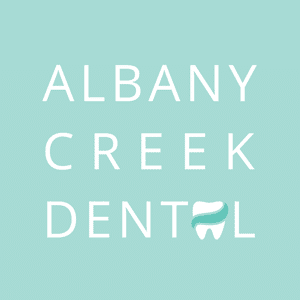Going to the dentist for a tooth cleaning is important for a healthy smile. But many people have questions about what it involves, like how long does a tooth cleaning take and if it will hurt. In this post, we will explain what happens during a dental cleaning, whether you’re overdue for one or are simply curious about the procedure.
What Is Dental Cleaning?
A dental cleaning is a regular procedure where a dentist or hygienist removes plaque, tartar, and stains from your teeth and gums. Plaque is a soft film that forms on teeth, while tartar is hardened plaque that only professionals can remove. Cleaning usually includes scaling to remove tartar, polishing to make teeth smoother, and possibly using fluoride to strengthen them.
Dental cleanings are essential for keeping your mouth healthy:
- These cleanings prevent tooth decay and gum diseases, such as gingivitis and periodontitis.
- They are typically recommended every six months and can spot potential problems early on.
- This can save you from having to get more expensive treatments later on.
- In addition to improving oral health, dental cleanings can also make your teeth feel smoother and brighter, giving you a more attractive smile.
How Long Does Cleaning Teeth at Dentist Take?
How long a dental cleaning takes can differ based on:
- How much plaque and tartar has built up
- If you have braces
- The type of cleaning being done
Regular Dental Cleaning
Usually takes 30-60 minutes and includes:
- Removing plaque and tartar, polishing, and sometimes fluoride treatment.
- A shorter cleaning time is likely if you keep up with good oral hygiene and regular dental appointments.
Dental Cleaning with Braces
People with braces require more time for dental cleanings, typically up to 90 minutes. The tight spaces between braces attract plaque and food particles, complicating the cleaning process. Dental professionals spend more time carefully cleaning around the brackets and wires to ensure thorough removal of debris.
Deep Dental Cleaning
When gum disease causes excessive tartar below the gumline, a deep cleaning procedure (scaling and root planing) might be necessary. This in-depth cleaning targets the area under the gums, removing plaque, tartar, and bacteria to prevent gum disease from worsening. Each session takes 1 to 2 hours, and multiple visits may be needed depending on the tartar buildup’s severity.
- Read More: HOW MUCH DOES TEETH CLEANING COST?
- Read More: HOW TO REMOVE CALCULUS FROM TEETH?
How Painful Is Teeth Cleaning?
Dental cleanings involve varied levels of comfort based on the type of cleaning and individual sensitivities.
Regular Cleaning
Generally, regular dental cleaning is pain-free or causes minimal discomfort. The scraping sensation from dental tools may feel odd or slightly uncomfortable, particularly initially. However, pain should not be experienced. If you have sensitive teeth, inform your dentist or dental hygienist to ensure they take measures to minimise discomfort.
Deep Cleaning
A “deep cleaning”, called scaling and root planing, focuses on thoroughly removing plaque and tartar buildup below the gum line. It may also involve cleaning the tooth roots. This procedure is more in-depth and can cause more discomfort, especially if the gums are inflamed. To reduce any pain, your dentist may use a local anaesthetic to numb the area being treated.
After Your Cleaning
- Eating and Drinking: After a routine dental cleaning, you can resume eating and drinking immediately. However, if you’ve had local anaesthesia for a more extensive procedure, wait until the numbness wears off to avoid potential bites on your cheeks or tongue.
- Duration of Appointment: The time spent at the dentist’s office for cleaning can vary. It typically ranges from 45 minutes to over an hour, including the actual cleaning, wait time, examinations, and discussions.
Conclusion
The length of a dental cleaning depends on your oral health needs and the cleaning method used. Dental cleanings are typically painless, with most patients feeling minimal or no discomfort. Despite any discomfort, regular dental cleanings are essential for maintaining healthy teeth and gums, so don’t let fear prevent you from getting them.
Frequently Asked Questions
Does teeth cleaning hurt first time?
Usually, teeth cleaning is not painful the first time. It may cause some discomfort or unfamiliar feelings from the scraping and polishing tools, but it shouldn’t be intolerable. If your teeth or gums are sensitive, inform your dentist to have them adjust their technique for your comfort.
Does teeth cleaning remove yellow?
Yes, teeth cleaning can remove certain types of yellowing, particularly surface stains caused by things like food, drinks, or smoking. However, if the discolouration is deep or natural, it may require further treatments, such as whitening to brighten your smile.
What are the disadvantages of teeth cleaning?
While teeth cleaning has some major benefits, it also carries some disadvantages, like temporary sensitivity or gum irritation and potential damage to enamel or gums if not done correctly.
Do teeth feel weird after cleaning?
Yes, it’s normal for teeth to feel different after cleaning. Teeth may feel smoother, cleaner, and more spaced apart. Also, sensitivity may occur due to the removal of plaque buildup. These sensations typically disappear within a few days.
- Read More: HOW TO REMOVE PLAQUE FROM TEETH?
- Read More: HOW LONG AFTER TEETH CLEANING CAN I EAT?
